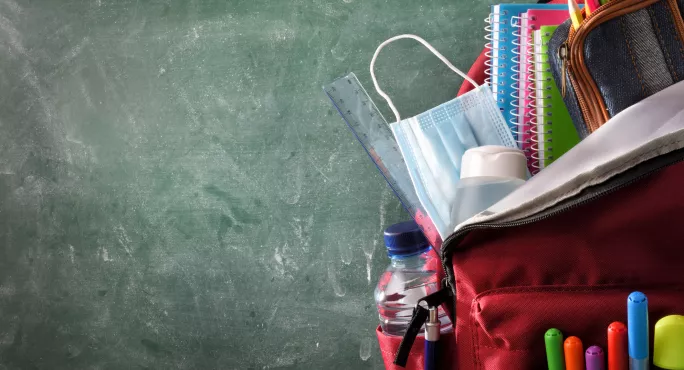First minister Nicola Sturgeon has stated that schools are still safe to open full time, despite concerns about the rising number of Covid-19 cases over recent weeks.
She made her comments after the EIS teaching union said that measures in schools are “just not effective given the current increases in the virus”.
When asked about the union’s concerns, during the Scottish government’s daily coronavirus briefing, she said: “Yes, I think schools are safe to be open full time.
“I think it’s really important that schools are open full time, and actually that’s one of the reasons why we’re asking the rest of us to live with greater restrictions on our freedoms, so that we do manage in other ways to try to keep the virus at a level where schools can open full time.”
Behind the scenes: Swinney sought legal advice over part-time school plans
Background: Scotland bans home visits in bid to keep schools open
Covid-19 staff and pupil absences: What the data says
The first minister added that local authorities have flexibility to take action where there are safety concerns, and pointed to the closure of some schools in the Western Isles today.
Ms Sturgeon said: “And of course we will always require to have a blended learning contingency in place, because none of us unfortunately know exactly what the winter period will hold in store for us.”
Keeping schools open was, she said, “important for, not just the education, but the health and wellbeing and future prospects of young people across the country”.
In response to the same question at the briefing, chief medical officer Gregor Smith said his view “very strongly just now is that it remains safe for schools to be open”.
He said this was particularly important for “some of our most vulnerable children”, adding that “in-person education is much better for them in the long term” and “helps to reduce some of the inequalities that we see within society”.
The EIS union said today that the first meeting of its national council for this school year, held on Friday, was “dominated by continuing concerns over Covid-19 and the need to keep teachers and pupils safe from the risk of infection”.
The council also approved a motion from Glasgow primary teacher and former EIS president Nicola Fisher, which called on the union “to campaign to secure a wider range of mitigations to protect pupils and staff in schools”.
Ms Fisher said: “The Scottish government decision to reopen schools was predicated on low instances of the virus, so the current mitigations in our schools are just not effective given the current increases in the virus across the country.”
Ms Fisher added: “This has led to the current situation where you can only meet one other household and no one in your own home - but somehow in school classrooms we can have 34 households in a class, with 33 pupils and a teacher.”
EIS Council members approved “Covid action points” that the union will take forward “as a matter of urgency”, worded as follow:
-
“Seeking clear articulation from the Scottish government of the triggers that would require local or national school closures, and/or a move to a blended or remote learning model of education;
-
“To demand contingency planning for staff previously shielding in the context of rising levels of infection;
-
“To continue and intensify the EIS campaign for smaller class sizes, which are essential to enable physical distancing to help keep staff and pupils safe;
-
“A renewed call for concrete physical distancing measures facilitated through expansion of the school estate and the employment of additional teachers;
-
“To call for clear guidelines from Scottish government on ventilation and heating in classrooms;
-
“To demand stronger guidance and support for [additional support needs] pupils and staff, including those in ASN settings;
-
“A renewed campaign on tackling the impact of poverty on educational experience;
-
“To express a lack of confidence in the SQA handling of the 2020 accreditation process and in the current planning for 2021.”




